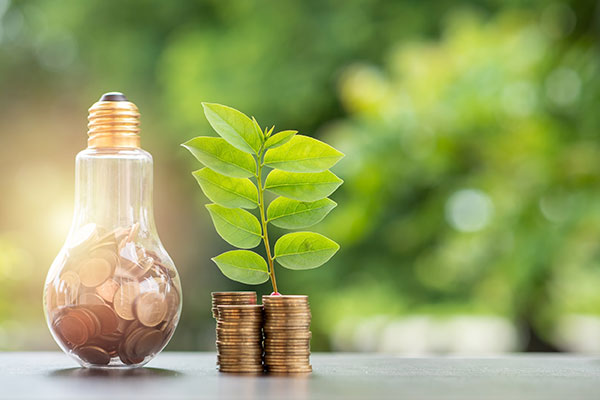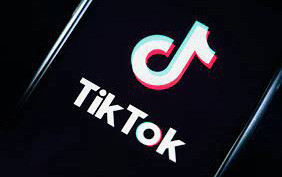
Energy efficiency refers to products or systems using less energy to do the same or better job than conventional products or systems. In other words, it implies using less energy to provide the same service. Energy efficiency aims at increasing production per unit of energy used. Saving energy is therefore critical in terms of reducing the country’s carbon footprint and significantly contribute to the country’s economic growth.
One of the key functions of Zimbabwe Energy Regulatory Authority (Zera) as mandated by the Energy Regulatory Authority Act is to promote renewable energy and energy efficiency. As the World commemorates the “World Energy Efficiency Day” industry and commercial players are encouraged to employ the following energy-saving tips:
- Boilers
Production of steam and hot water is a major activity for most enterprises and uses well-known technology. However, poor boiler operation represents a significant source of energy losses. Therefore, boiler performance improvement is often a practical and low-cost option. The actions that can be taken to improve performance include:
- Monitoring combustion conditions routinely and always keeping efficiency as high as possible.
- Ensuring there are adequate controls to adjust the quantity of combustion air.
- Ensuring insulation (on the outside of the boiler) and refractory (inside) are in good condition and that thicknesses are appropriate for good modern practice.
- Steam Systems
These represent an important operating cost for many companies and good performance can be achieved by good management. Substantial losses are incurred through poor maintenance as well as poor original design. The following actions should be considered:
- Insulate steam and condensate return lines, vessels, and fittings.
- Repair steam leaks and maintain steam traps.
- Use condensate return systems to the maximum.
- Lighting
- Use LED energy saving bulbs for indoor use and LED floodlights for outdoor use. They last more than 5 years and use 80% less energy.
- Use LED tubes in place of fluorescent tubes which use more energy due to the ballasts
- Use controls such as timers and photocells as they save electricity by turning lights off when not in use. Dimmers save electricity when used to lower light levels
- Use appropriate lighting levels for different parts of the work area.
- Install lights at working level where possible, not necessarily on a high ceiling.
- Use natural light where possible, e.g., fit translucent roof panels or skylights.
- Paint walls and ceilings white or bright colours (also floors if possible) to improve light reflection.
- Motors and drive systems
In all sectors, motors are significant energy consumers. In many industrial plants, motors and drive systems may consume over 50% of the total electricity used. Poor motor performance is typically a major source of energy losses. The following actions should be considered to improve motor performance:
- Use properly sized motors and only run when needed.
- Use high efficiency motors.
- Use electronic variable speed controls where motor loads are variable in normal operation.
- Use cogged belts or improved gears: smooth belts often slip and are not efficient.
- Install improved bearings and lubricate regularly.
- Compressed air systems
Often a significant user of electricity in an industrial plant, compressed air systems frequently lack meters and suffer poor maintenance. Operating practices may be poor too. The following actions should be considered:
- Eliminate inappropriate use of compressed air (for example, do not use for clearing away dust or metal shreds from lathes and similar machines).
- Listen for leaks during shift changes or lunch breaks, when workshops are typically quiet and not supposed to be using air.
- Regular maintenance of all parts of the system, including valves and joints, which are often subject to leaks.
- Check air filters as these may be blocked by dust or grease.
- Reduce air intake temperature e.g., consider relocating the intake.
- Refrigeration
- Avoid frequent opening and closing of doors. One opening and closing of the refrigerator consumes an average of 0.003kWh. In summer this consumption doubles to 0.006kWh.
- Do not position fridges too close to the wall. The refrigerant, during the cooling process by heat transfer, picks up heat. The refrigerant then passes through a network of pipes through which the heat is lost to the atmosphere. If the fridge is too close to the walls air circulation is hindered.
- Adjust the refrigerator temperature settings when moving from summer to winter season. In winter ambient temperatures are low such that the refrigerant will have lower temperatures as well.
- Hot substances such as meals should be cooled to room temperatures using natural air before being placed in the refrigerator. Electricity consumption can be reduced by 10% if meals are cooled from 50 C to 20 C using natural air before being placed into refrigerators.
- Regularly defrost manual-defrost refrigerators and freezers; frost build up increases the amount of energy needed to keep the motor running.
7 Air conditioning
- Avoid direct sunlight into the room by use of curtains or blinds. Heat from the sunlight can be reduced by 70-80% this way and hence savings can be achieved by avoiding the power needed to remove this extra heat and regulate the temperature to the set point.
- Clean the air conditioner filter frequently. The air conditioner efficiency goes down to 90-95% if the filter is not cleaned regularly.
- Set your air-conditioner to recirculate cool air instead of drawing in warm outside air
- Protect outdoor cooling units from the sun
- Water heating
- The use of solar water heaters as opposed to electric water geysers
- Solar geyser installation now mandatory on all new buildings through SI 235 of 2019 – Electricity (solar water heating) regulations.
- Using a solar geyser can save up to 40% of an average household electricity bill
- Chamisa under fire over US$120K donation
- Mavhunga puts DeMbare into Chibuku quarterfinals
- Pension funds bet on Cabora Bassa oilfields
- Councils defy govt fire tender directive











